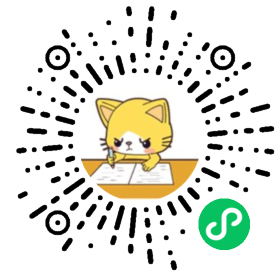【单选题】
下列哪一项不属于津液的范围___
A. 胃液
B. 肠液
C. 沸液
D. 血液
E. 泪液
查看试卷,进入试卷练习

微信扫一扫,开始刷题

答案
D
解析
暂无解析
相关试题
【单选题】
Q1: What does the man suggest that the woman do this weekend?___
A. Read J .K .Rowling's first book .
B. Go to buy a new Harry Potter book .
C. Watch BBC news about J .K .Rowling .
D. Take her cousin to see a new Harry Potter movie .
【单选题】
Q2: Where did J. K. Rowling come up with the idea for Harry Potter?___
A. At a cafe .
B. On a train .
C. At a cinema .
D. In a bookstore .
【单选题】
Q3: What are J. K. Rowling’s future plans?___
A. She won't write any more books .
B. She will write more magic stories .
C. She hasn't said anything about her future plans .
D. She said she would work on more serious subjects .
【单选题】
Q4: What are the two speakers mainly talking about?___
A. J.K. Rowling's secret .
B. J .K .Rowling's writing plan .
C. A new book by J .K.Rowling.
D. An interview with J .K .Rowling .
【单选题】
Q1: What happened when Stephen tried to remove a bottle of milk from the refrigerator?___
A. He broke the milk bottle .
B. He fell down on the floor .
C. He made a mess inside the refrigerator .
D. He spilled the milk over the kitchen floor .
【单选题】
Q2: What did Stephen’s mother do when she came into the kitchen?___
A. She gave him a long lecture .
B. She shouted at him in anger .
C. She enjoyed the wonderful mess .
D. She cleaned up the mess with him .
【单选题】
Q3: What did Stephen’s mother teach him later?___
A. How to do an experiment .
B. How to carry a milk bottle .
C. How to clean up spilled milk .
D. How to avoid making mistakes .
【单选题】
Q4: What did Stephen learn from this experience?___
A. Mistakes can become learning opportunities .
B. Mistakes are just like scientific experiments .
C. One should sometimes make mistakes .
D. One should try to avoid making mistakes .
【单选题】
Q1: Why is surfing the man’s favorite activity?___
A. Because he likes the sunny weather.
B. Because he wants to challenge himself .
C. Because it can help solve his sleeping problem .
D. Because it can help him forget all his troubles .
【单选题】
Q2: What is the woman going to do this weekend?___
A. To go sailing .
B. To go surfing .
C. To go to the beach .
D. To go to her nephew's .
【单选题】
Q3: What does the woman love doing?___
A. Going to visit relatives.
B. Enjoying the warm sun on the beach .
C. Building sand castles with her niece and nephew .
D. Playing in the sand and jumping in the waves .
【单选题】
Q4: What does the man remember doing with his brothers?___
A. Surfing in the sea .
B. Collecting seashells .
C. Building sand castles .
D. Jumping in the waves .
【单选题】
Q1: According to the survey, what percentage of British adults watched TV in theirfree time?___
A. 89 percent .
B. 84 percent .
C. 76 percent .
D. 71 percent .
【单选题】
Q2: Which age group would be the most likely to visit their friends and relatives?___
A. People aged 16 to 24
B. People aged 25 to 34 .
C. People aged 16 and over .
D. People aged 55 and over .
【单选题】
Q3: What does the speaker say about listening to music as a leisure activity for British people?___
A. People aged 16 to 24 preferred listening to music most .
B. It was getting more and more popular among the British people .
C. It was the third most popular activity among people aged 55 and over .
D. People aged 25 to 34 listened to music more often than those aged 16 to 24 .
【单选题】
Q4: According to the survey, how are leisure activities related to age?___
A. Older people go out to pubs more often . frequently .
B. Younger people go to the cinema less frequently.
C. Older people spend more time reading and gardening .
D. Younger people spend less time visiting friends and family .
【单选题】
Q1: Why was the girl excited?___
A. She is going to have a lot of vanilla ice cream .
B. She won the spelling competition at her school .
C. She is going to the state capital for a competition .
D. She "excellence"correctly,but others didn't .
推荐试题
【单选题】
___,是新民主主义经济纲领中极具特色的一项内容。
A. 没收封建地主阶级的土地归农民所有
B. 没收官僚资本归新民主主义国家所有
C. 没收官僚资本归社会主义国家所有
D. 保护民族工商业
【单选题】
我国新民主主义革命阶段基本结束和社会主义革命阶段开始的标志是___
A. 中华人民共和国的成立
B. 土地改革的完成
C. 社会主义改造基本完成
D. 第一届全国人民代表大会召开
【单选题】
土地改革基本完成后中国国内的主要阶级矛盾是___
A. 人民大众和封建主义的矛盾
B. 工人阶级和资产阶级的矛盾
C. 农民阶级和地主阶级的矛盾
D. 人民对于经济文化迅速发展的需要同当前经济文化不能满足人民需要的矛盾
【单选题】
在新民主主义社会的经济成分里,在国民经济中占有绝对优势地位的是___
A. 通过没收官僚资本形成的社会主义国营经济
B. 私人资本主义经济
C. 农业和手工业为主体的个体经济
D. 国家资本主义
【单选题】
在新中国成立后的一个时期内半社会主义性质的合作经济是___
A. 私人资本主义经济向社会主义国营经济的过渡形式
B. 个体经济向社会主义集体经济的过渡形式
C. 个体经济向社会主义公有制经济过渡的形式
D. 资本主义个体经济向社会主义个体经济过渡形式
【单选题】
新中国成立后的一个时期国家资本主义经济本质上是___
A. 资本主义经济
B. 社会主义经济
C. 社会主义国营经济
D. 新民主主义国家政权控制和调节的具有社会主义取向的资本主义经济
【单选题】
过渡时期的总路线和总任务是___
A. 无产阶级领导的人民大众的反对帝国主义封建主义官僚资本主义的革命
B. 要在一个相当长的时期内逐步实现国家的社会主义工业化并逐步实现国家对农业、手工业
【单选题】
1952 年提出的过渡时期总路线的过渡时期是指___
A. 从中华人民共和国成立到社会主义建成
B. 从国民经济恢复到社会主义改造完成
C. 从中华人民共和国成立到社会主义改造基本完成
D. 从总路线提出到建成社会主义
【单选题】
过渡时期总路线最显著的特点是___
A. 社会主义改造和工业化同时并举
B. 民主革命和社会主义革命同时并举
C. 先合作化后工业化
D. 社会主义改造和社会主义改革同时并举
【单选题】
过渡时期总路线是中国共产党在一个较长时期内对中国农业、手工业和资本主义工商业改造的指导性路线,党中央制造这个总路线的主旨是___
A. 变革经济体制
B. 变革所有制
C. 变革政治制度
D. 变革生产力
【单选题】
1956 年三大社会主义改造的基本完成,标志着我国___
A. 实现了国民经济的全面恢复
B. 社会主义制度的基本确立
C. 第二个五年计划的胜利完成
D. 新民主义社会的开始
【单选题】
新民主主义社会向社会主义社会转变的时期是指___
A. 1949 年 10 月-1952 年 12 月
B. 1949 年 10 月-1956 年 12 月
C. 1957 年 1 月-1966 年 4 月
D. 1953 年 1 月-1956 年 12 月
【单选题】
1951 年至 1952 年,我国开展的“三反”运动是___
A. 反贪污、反浪费、反官僚主义
B. 反行贿、反偷税漏税、反盗窃国家经济情报
C. 反浪费、反盗骗国家财产、反偷工减料
D. 反腐败、反浪费、反官僚主义
【单选题】
在新民主主义社会里民族资产阶级仍是一个具有两面性的阶级。这种两面性是指___
A. 剥削工人的一面与接受工人阶级及其政党领导的一面
B. 与工人阶级的阶级利益相互对抗的一面与与工人阶级相互合作,具有相同利益的非对抗性
【单选题】
对资本主义工商业改造采用和平赎买的方法,所谓“赎买”是指___
A. 国家出资将民族资本主义企业购买变为国营企业
B. 让资本家在一定年限内从企业经营所得中获取一部分利润
C. 国家先付给企业一部分资金,随后再从企业经营所得中获取一部分利润
D. 国家先将私营企业改变为国营企业,等盈利后一次性还清收购资金

